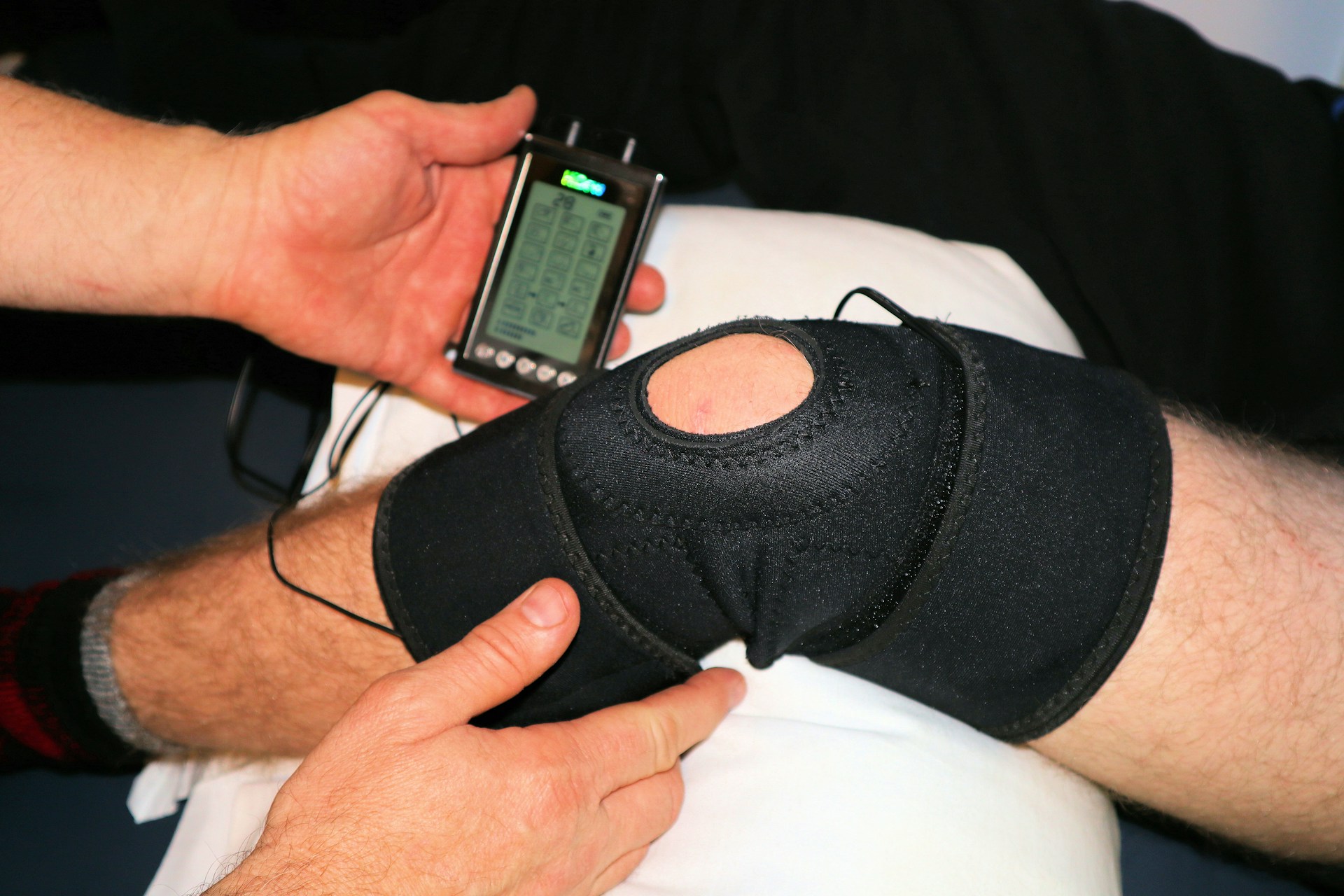In the realm of sports, the prowess of athletes is fueled by rigorous exercise regimes, advanced techniques, and above all, optimal nutrition. Nutrients, including proteins, vitamins, and energy-rich compounds, form the foundation for an athlete’s performance, strength, and recovery. However, when faced with injuries, can tailored nutrient management support recovery?
In this article, we delve into the multifaceted world of sports nutrition, extrapolating from various scholarly sources, such as Google Scholar, Pubmed, and CrossRef. Our focus lies in understanding the intricate relationship between nutrition, muscle recovery, and injury rehabilitation in athletes. Let’s decode the science behind the intake of certain nutrients and how they contribute to quick and effective recovery from sports injuries.
Also read : Can Mind-Body Interventions Reduce Premature Birth in High-Risk Pregnancies?
The Role of Protein in Muscle Recovery and Injury Repair
Protein is integral to the body’s recovery process. As athletes, you constantly engage your muscles during exercise, leading to wear and tear. Proteins come to the rescue by promoting muscle synthesis, repairing damaged tissues, and aiding in the recovery process.
Research from various health and sports science databases, including PubMed and CrossRef, shows a clear link between protein intake and muscle recovery. A well-documented study on Google Scholar highlights the importance of consuming high-quality proteins after intense exercise to stimulate muscle protein synthesis.
In the same genre : How Can Digital Therapeutics Aid in the Management of Type 1 Diabetes in Children?
The body’s need for protein increases after an injury. According to a review on PubMed, supplying the body with ample protein can help speed up recovery, reduce muscle loss, and improve overall health during the healing period. Therefore, it’s crucial to tailor your protein intake to match this increased need during the healing process.
The Influence of Energy-Rich Nutrients on Recovery
Just as a car needs fuel to run, your bodies need energy to function and recover from injuries. Carbohydrates and fats, the main sources of this energy, play a pivotal role in the overall health and recovery of athletes.
An athlete’s body demands more energy during recovery, even while resting. Found on Google Scholar, a study suggests that a higher intake of energy-dense nutrients can support the recovery process, reducing the duration of the healing period. Moreover, the energy derived from carbohydrates and fats is indispensable for protein synthesis, further aiding muscle recovery.
The right balance of these energy-rich nutrients can make a significant difference to your recovery journey. Hence, it’s essential to manage your intake of carbohydrates and fats in a way that complements your body’s increased energy requirements during recovery.
Vitamins and Recovery: An Unmissable Connection
Vitamins, though needed in small quantities, have a significant impact on body functions, including recovery from sports injuries. Vitamins A, C, and D, in particular, are known for their role in tissue repair, bone health, and immune function, all of which are critical during the recovery period.
Vitamin A supports the production and function of white blood cells, which are necessary for fighting infections and promoting recovery. Vitamin C is an antioxidant that aids in tissue repair and collagen production. Lastly, Vitamin D is crucial for bone health, which can be particularly important for athletes recovering from bone-related injuries.
Various scholarly sources, including PubMed and CrossRef, underscore the critical role of these vitamins in injury recovery. Therefore, incorporating foods rich in these vitamins or supplementation, if needed, can greatly enhance the recovery process.
Nutrient Timing for Optimized Recovery
The timing of nutrient intake also plays a crucial role in recovery. The body’s ability to synthesize proteins and absorb nutrients fluctuates throughout the day. Therefore, consuming nutrients at the right time can enhance their effectiveness in promoting recovery.
The concept of nutrient timing has been extensively researched on platforms like Google Scholar, PubMed, and CrossRef. One study found that consuming protein before sleep could significantly improve muscle recovery in athletes, as the synthesis of proteins peaks during sleep.
Similarly, consuming carbohydrates and protein immediately after exercise can replenish energy stores and stimulate muscle protein synthesis, thus speeding up recovery. Therefore, understanding and implementing the principles of nutrient timing can be a game-changer in your recovery journey.
In the world of sports, injuries are often unavoidable. However, how quickly and effectively you recover can make all the difference in your performance and career. By tailoring your nutrient intake and timing to suit your body’s needs during recovery, you can bounce back stronger and faster. Remember, your body is your temple – nourish it well, and it will serve you well.
The Relationship Between Fatty Acids and Muscle Damage Recovery
Athletes often push their bodies to the limit, which can result in muscle damage. To facilitate recovery, an essential component of nutrition is fatty acids. These bioactive compounds are known for their role in immune responses, inflammation control, and muscle health.
Omega-3 fatty acids, in particular, have garnered attention in the realm of sports medicine. Found in foods like fish, walnuts, and flaxseeds, these fatty acids have been linked to improved muscle mass and strength, as suggested by numerous studies on platforms like Google Scholar, Pubmed, and CrossRef.
A PMC free article underlines the significance of omega-3 fatty acids in reducing inflammation, which in turn can expedite the recovery of muscle damage. Moreover, according to a scholarly article on CrossRef, these fatty acids can enhance protein synthesis, thereby facilitating muscle repair and growth.
However, it’s important to note that not all fatty acids contribute positively to recovery. Trans fats, for instance, can impair muscle health and slow down recovery. Therefore, it’s crucial to ensure your diet includes healthy fatty acids while minimizing harmful ones.
Hydration and Its Contribution to Athletic Performance
It’s no secret that hydration is a vital part of an athlete’s routine. Whether it’s before, during, or after a sports activity, replenishing lost fluids is essential in maintaining athletic performance. But how does hydration contribute to recovery after sports injuries?
According to several free articles on Pubmed and CrossRef, hydration plays a significant role in recovery. It helps maintain the body’s temperature, lubricate joints, and transport nutrients to cells, thus aiding in the healing process.
Moreover, dehydration can hinder muscle protein synthesis, according to an article on PubMed. By staying hydrated, athletes can ensure optimal protein synthesis, which is crucial for muscle repair and recovery.
In addition to water, drinks containing electrolytes can also enhance recovery. Electrolytes like sodium and potassium help replace what’s lost in sweat, maintain fluid balance, and aid in muscle function.
In conclusion, nutrient management is a powerful tool to aid in recovery after sports injuries. Proteins, energy-rich nutrients, vitamins, fatty acids, and adequate hydration can collectively work to expedite the healing process and improve overall health. When tailored to an individual’s needs and paired with the right timing, these nutritional strategies can significantly enhance recovery, enabling athletes to return to their sport stronger and faster.
In the end, the saying “you are what you eat” rings incredibly true for athletes. The nutrients you consume can directly impact your ability to recover from injuries, maintain muscle mass, and ultimately, your athletic performance. Therefore, careful planning and consideration of your diet, with the help of available research on platforms like Google Scholar, Pubmed, and CrossRef, can go a long way in fostering a quick and effective recovery.

